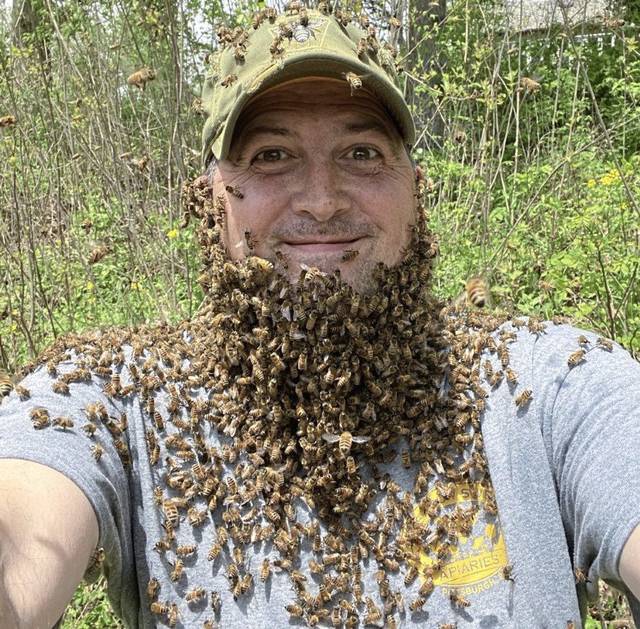Thursday was a busy day for beekeepers, and not just because it was World Bee Day, when people should reflect on the importance of bees and their role as pollinators supporting our food crops and environment.
Bill Kopar of Fawn Township, owner of the Kopar Honey Farm, recently has been running his hives to major farms in Indiana and Washington counties and elsewhere.
Kopar has been as busy as his bees.
Those bees are pollinating the plants that will bear zucchinis and tomatoes soon to show up in your local supermarket. You’ve already had the strawberries and blueberries that his bees had a hand in raising.
If fruit trees and crops are not pollinated, the fruit and plants won’t grow as vigorously and yields will suffer.
More than one-third of world crops including alfalfa seed, sunflower, fruits and vegetables depend on bee pollination, an ecological service valued in North America at $20 billion a year, according to the University of Minnesota.
For World Bee Day, Kopar has this advice for residents: “Try being kinder to bees. They are pretty gentle creatures not bothering us. We need them a lot more than they need us.”
Kopar advocates banning neonicotinoids, an insecticide, that can be fatal to bees.
Bees also will be served if residents lessen or stop using chemicals on their lawns and pulling out dandelions and clover, said Steve Repasky, an Apollo native, certified master beekeeper and president of the Pennsylvania State Beekeepers Association.
Repasky, a resident of Dormont, said honey bee populations this year are at status quo. Beekeepers on average lose 40% of their hives annually in the state, he said. This year, Repasky is doing well, losing only 12% to 15% of his hives because of “intense management.”
There are about 6,000 registered beekeepers in the state; about 85% of them are backyard hobbyists, Repasky said.
He would like to see more residents help pollinators by planting beneficial plants, generally native plants and perennials.
“Stick to perennial coneflowers, black-eyed Susans, mint, lavender — it will be beneficial to pollinators and will make your yard look nice,” he said.
Creating some buzz, Pittsburgh’s Burg Bees group offers free events and demonstrations to the public about bees and urban beekeeping. Open apiary and other events are offered free to the public on May 29 from 11 a.m.to 1 p.m., and June 5, 11 a.m. to 1 p.m. To register and learn more, visit Burg Bees website.








